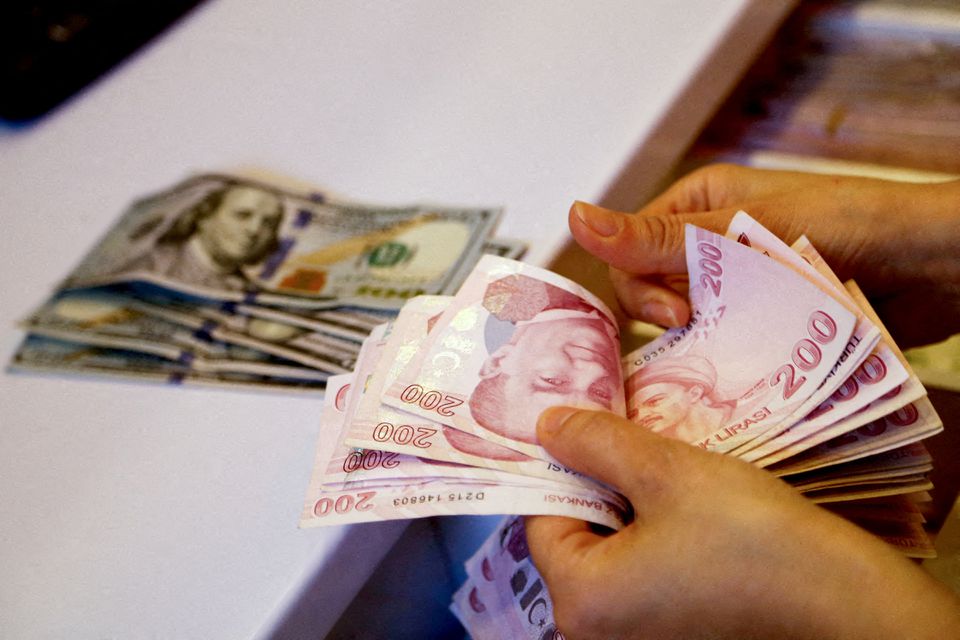The Turkish lira weakened for a fifth consecutive day on Friday, further eroding the big gains it made a week earlier as investors continued to fret about the country’s unorthodox monetary policy and rising inflation.
The lira stood at 13.3 against the dollar in thin trade at 0806 GMT, 0.6 per cent weaker than Thursday’s close and down 20 per cent from the end of last week.
Turks’ earnings have been eroded in recent months by the slide in the lira, though it rebounded from 18.4 to 10.25 last week after the introduction of a state scheme to protect local deposits from depreciation losses versus hard currencies.
Finance Minister Nureddin Nebati said this week that Turks’ dollar holdings have since fallen, but official data on Thursday showed local holdings of hard currencies soared to a record $238.97 billion last week.
At the same time the central bank’s net foreign currency holdings – its effective buffer against financial crisis – plunged to nearly a two-decade low.
The currency crisis was triggered by the central bank’s aggressive interest rate cuts, amounting to 500 basis points since September, carried out under pressure from President Tayyip Erdogan as part of a bid to boost credit and exports.
Economists have said the easing is reckless, given that inflation has risen above 21 per cent and is expected to soar beyond 30 per cent this month and in the months ahead due to the lira depreciation.
Meanwhile, Turkey’s central bank said on Friday it sold $687 million during its direct market intervention on Dec. 10 to support the ailing lira, bringing to a total $2.035 billion the value of its first three announced interventions this month.
The lira was 0.6 per cent weaker at 13.3 against the dollar at 0934 GMT, bringing its losses this year to 44 per cent on the back of concerns about surging inflation and orthodox monetary policy.
In total the central bank announced direct intervention on five occasions this month.






Click here to change your cookie preferences